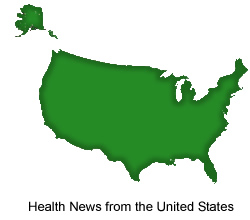
Date Published: 24 February 2010
Information on Life after Cancer Now Available on NIHSeniorHealth.gov

Older adults who have survived cancer can find out what to expect once treatment ends in Life after Cancer, the newest topic on NIHSenior Health (www.nihseniorhealth.gov/lifeaftercancer/toc.html).
Visitors to the site will learn about managing follow-up care, physical and emotional changes, and relationships with family and friends. The topic also addresses how a person's age and health status can affect recovery and survival. This is important information for older adults who make up about 60 percent of cancer survivors and whose cancer treatments may have been complicated by other aging-related health conditions.
NIHSeniorHealth is a health and wellness Web site geared to the needs of older adults. It was developed by the National Institute on Aging (NIA) and the National Library of Medicine (NLM), both part of the National Institutes of Health.
Although many people are living longer following cancer due to better diagnostic tests and treatments, life after cancer can bring its own challenges.
" Many cancer survivors look forward to returning to a normal life after treatment ends, but for some, this can be a stressful period," said Julia Rowland, Ph.D., director of the Office of Cancer Survivorship at the National Cancer Institute (NCI), which developed the topic.
" Understanding what to expect after cancer treatment can help survivors and their families plan for follow-up care, make positive lifestyle changes, and consider important health-related decisions."
Older Americans are increasingly turning to the Internet for health information. According to NIH News over 70% of online seniors look for health and medical information when they go on the Web. NIHSeniorHealth (www.nihseniorhealth.gov), which is based on the latest research on cognition and aging, features short, easy-to-read segments of information that can be accessed in a number of formats, including various large-print type sizes, open-captioned videos and an audio version. Additional topics coming soon to the site include periodontal disease, dry eye, and collecting your family health history.
Source:  National
Insitutes of Health (NIH), USA..
National
Insitutes of Health (NIH), USA..
![]()



